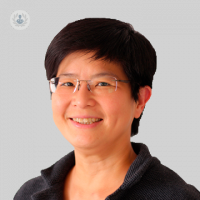Miscarriage, recurrent miscarriage and causes
Autore:Miscarriage, recurrent miscarriage and the associated emotions it can bring are difficult. Further to this, the reasons behind why it happened can also be equally tough to cope with.
If you’re unsure about the causes of miscarriage and have questions about them, leading reproduction and surgery specialist Professor Ying Cheong can assist.

What are the most common causes of a miscarriage? Is it possible to determine the cause of a miscarriage?
Miscarriage can be caused by:
- a defective womb lining (endometrium) which can be a result of infection, inflammation, repeated surgery, adhesions, or unknown;
- an abnormal embryo (incorrect chromosome/genetic makeup) which can be the result of ageing or a condition you are born with;
- abnormal hormonal balance (conditions such as abnormal thyroid, or polycystic ovary syndrome is associated with miscarriage);
- unexplained (this is when no investigations have revealed any abnormalities).
Maintaining a healthy lifestyle, avoiding smoking, excessive alcohol and maintaining a normal weight can reduce your risk of having a miscarriage.
There are tests that can be performed to check for abnormalities. But generally speaking, as miscarriage can occur in one in five women, investigations are not performed after one miscarriage. But if miscarriages are recurrent, defined by loss of two or more pregnancies, usually in the early stages of pregnancy, investigations would be performed.
If you suffer from late miscarriages (pregnancy losses in the second trimester, a miscarriage that happens after three months of pregnancy but before 24 weeks), there may be other reasons e.g., weakness of the neck of the womb that would require investigation and monitoring.
However, if you are concerned about your risk of a repeat miscarriage for whatever reason, it would be useful to have a chat with your doctor who can then screen through your medical history to assess your risk.
What is considered recurrent miscarriage?
This is defined by loss of two or more pregnancies, usually in the early stages of pregnancy, and in this case, investigations would be performed.
When should you see a doctor about recurrent miscarriage?
You should see your doctor if you have had two or more miscarriages. Or if you think you are at risk of recurrent miscarriages due to the above reasons.
What tests are performed in cases of recurrent miscarriage?
The investigations include:
- Examining clotting factors (thrombophilia screening)
- Examining the genetics of parents (karyotyping)
- Checking your hormones (e.g., thyroid function tests)
- Investigating the shape of the womb and its cavity and lining (this can be done by a 3D scan and if required an operation called hysteroscopy and endometrial biopsy)
Is it possible to have a healthy pregnancy after several miscarriages?
It is possible to have a heathy pregnancy after having recurrent miscarriages. In fact, research has shown that in women who had three or more miscarriages, there is a six out of 10 chance that their next pregnancy will be fine.
If you’re looking for medical expertise regarding concerns you may have surrounding recurrent miscarriage or other reproductive health issues, arrange an appointment with Professor Cheong via her Top Doctors profile.


